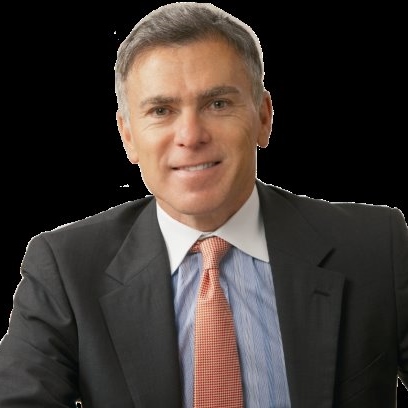
News

Jewish business gets to work on youth unemployment – uncut
JORDAN MOSHE
“According to the National Development Plan, by 2030, 90% of new jobs will be created by small business, and we believe this is where opportunity lies,” says Adrian Gore, Group Chief Executive of Discovery, who is involved in this endeavour.
The Jewish community makes a sizeable contribution to improving employment prospects for the youth, Gore says. About 6% of Johannesburg Stock Exchange-listed companies are founded or led by Jews, 17% of South Africa’s gross domestic product is based on Jewish led or founded businesses (according to 2013 data), and 1.67 million jobs have been created by Jewish-led businesses – 1.9 million including direct and indirect jobs, mostly in the retail, financial services, and mining sectors.
Listed Jewish companies are also spending more than R1 billion a year on Corporate Social Investment initiatives, not-for-profit initiatives, and community building. This include corporate mentorship programmes and training, as well as training for health professionals in HIV treatment by the SMILE Foundation, Hatzolah, the Abraham Fund, and CHIVA.
Statistics South Africa released the latest unemployment figures last week, which have risen to their highest level since the third quarter of 2017.
The number of employed people decreased by 237 000 in the first quarter of 2019. This means that 16.3 million are currently without jobs, according to Stats SA.
With the unemployment rate at 27.6%, the hardest hit is reportedly the youth, with 55.2% being out of work. Though many of them hold no qualifications, some remain unemployed despite holding a degree or diploma, a reality which is nothing short of alarming.
Errol Freeman, sales and marketing director at youth employment engine Lulaway, confirms that the situation is dire. “There is a potential ticking time bomb of disenfranchised youth who have been let down by government,” he says. “There are systemic socioeconomic issues that are deep-rooted and need to be addressed.”
But the problem doesn’t stop with getting a job. “Job retention is also a massive problem, and expectations are not in line with reality. Unfortunately, most young people don’t have role models that can help them navigate through their first job, so they drop out, diminishing their opportunities going forward.”
Compounding the problem even further is South Africa’s economic disadvantages. “Besides the unemployment crisis in South Africa, this is also one of the poorest in the world,” says Ariellah Rosenberg, chief executive of ORT South Africa. “If compared to the worldwide trend, where unemployment rates improve or stabilise (on average at 5%), South Africa is far down on the unemployment scale with two-digit numbers of 27% generally, and with almost 60% of our youth unemployed.”
Freeman points out that labour laws in the country are draconian, hindering employment, as most businesses would rather not employ someone than be stuck with the wrong person who they can’t get rid of. “What was set up to protect them,” he says, “has become a hindrance to procuring one’s first job.”
He explains that the only way new jobs will be created is if they go hand in hand with the development of small business. “One of the real reasons small businesses are not growing is the lack of resources for employing someone to share the load,” he says.
“The YES [Youth Employment Service] initiative has been launched by our new president to address the problem. This is done by incentivising corporate South Africa to fund interns in small businesses, thereby raising [the corporates’] BEE [black economic empowerment] scorecard. I really believe if this is done properly it can have a major impact.”
The YES campaign aims to ensure sustainable employment for youth. Gore, who is one of the backers of this initiative, says approaches like this are sorely needed, including involvement from government, individuals, and the private sector.
Says Gore, “We have seen the launch of YES, and the South African SME [small and medium enterprises] Fund launched the CEO Circle, an initiative aimed at accelerating the growth of high potential black businesses within the fund’s shareholders’ supply chains.
“SMEs make an important contribution to the economy,” he says. “Hence, the vast majority of the fund’s investment focus is on small businesses of R100 million or less in value. It’s about empowering entrepreneurs to progress from start-up phase to businesses of scale in order to move the needle on job creation.”
Freeman says that the community can always do more. “Jews are generally are very strong in the retail and banking sectors, where there are many job opportunities for young, entry-level workers. However, they believe entry level workers are an easily accessible and disposable resource. We place the right person in the right job, creating sustainable jobs. We need support, and the Jewish community needs to get involved. It has always been very involved in business and social causes.”
Rosenberg agrees, with ORT SA at the forefront of education, skills, and enterprise development, with the aim of making people employable and creating employment opportunities.
“The solution has to be a combination of policy reforms that encourage and promote growth of the business sector as well as skills and education strategies that can be implemented on a national scale.” With its coding and IT programmes, mentoring of small and medium businesses, and partnerships with YES and the department of education, ORT SA has also committed itself to helping South African youth secure a more stable future.
“Our role is to teach, raise awareness, inspire, and provide the tools to cope with an unstable and unpredictable job market,” says Rosenberg.
“The only way we’re going to get things right is if the government and big business works together as opposed to being at loggerheads with each other,” says Freeman. “I’ve met lots of businesses over the past couple of months that want to get involved, want to be part of the solution, want to be part of the future. But we still need more business commitment.”




